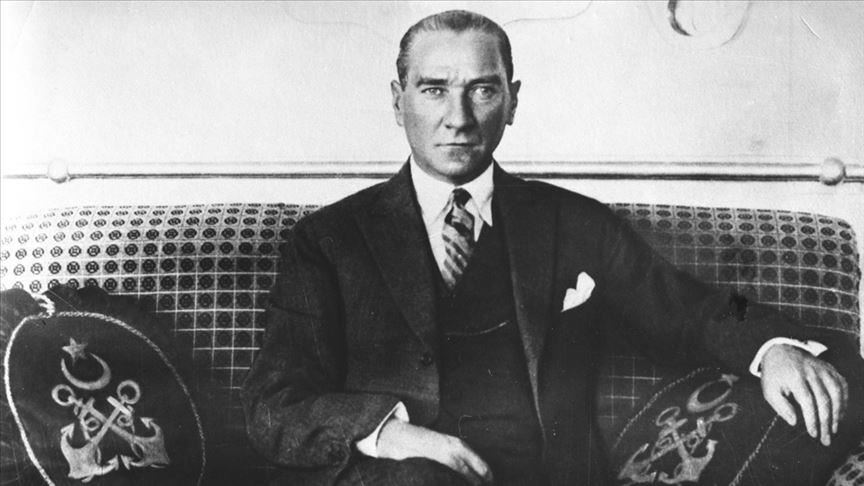Ataturk’s legacy remains alive 81 years after his demise
Mustafa Kemal Ataturk, founder of Republic of Turkey, passed away in 1938 at age of 57

ANKARA
Millions of Turkish people across the country on Sunday marked the 81st anniversary of the demise of Mustafa Kemal Ataturk, the leader who led the country's war of independence and laid foundation of the Republic of Turkey.
As is customary, daily life stopped at 9.05 a.m. local time (0605GMT), sirens wailed to mark the exact moment of Ataturk’s demise at the age of 57 and millions of people across the country observed two minutes of silence.
Ataturk was born in 1881 in the Greek city of Thessaloniki, then part of the Ottoman Empire. His military education started in 1893 when he was enrolled in a military school in Thessaloniki.
He continued his education in the Military Academy of Istanbul and then got graduated as the second lieutenant in 1902. With his extraordinary skills, Ataturk quickly climbed the military ranks, becoming a captain in 1905.
1911 marked a significant point in Ataturk's life, as he fought Italians in Tripoli and won a decisive victory, proving his skills in the military field. However, this huge success was nothing compared to what future planned for him.
He drew attention of his subordinates with his outstanding services following the start of Balkan Wars in 1912. He played a significant role in recapturing Dimetoka and Edirne provinces.
In 1914, World War I started and the alliances deployed soldiers on the Gallipoli peninsula and the battle of Canakkale started. Ataturk and Turkish soldiers made history by showing incredible resistance. Ataturk's order to his soldiers at the war still echoes in the hearts of all Turks: "I don't order you to attack, I order you to die!"
His star continued to shine during his services in northwestern Edirne province and southeastern Diyarbakir province in 1916, earning major general title the same year. He fought against the British army in Damascus in 1918, and led successful resistance against it.
Following occupation of Istanbul by the allies, in 1919, Ataturk went to northern Samsun province as the inspector of the 9th army, which changed his life completely, and Turkey’s eventually.
After he said that the liberation of country from the occupant forces could only be possible through the will of people, he organized two congresses -- in Sivas and Erzurum provinces -- where the battle of independence and the country's future was discussed.
On April 23, 1920, the Grand National Assembly of Turkey was established and Ataturk was elected as the head of the government and speaker of the parliament, which enabled him to adopt laws essential to beat occupant forces.
The battle of Turkish independence started on May 15, 1919, when the first bullet against the occupant Greek forces was fired by Hasan Tahsin, a Turkish journalist who was martyred shortly after his action.
Turkish army, under the leadership of Ataturk, won incredible battles against the occupant forces -- including the first and second Battles of Inonu, Sakarya, Great Offensive -- until 1923 when the Lausanne Treaty was signed on July 24.
The incredible achievements on the battlefield led to Turkish independence, and the Republic of Turkey was founded on Oct. 29, 1923.
Ataturk became the first president of the republic until Nov. 10, 1938, when he passed away in Istanbul at the age of 57 due to cirrhosis disease.
As a tradition, Turkish people visit his mausoleum in Ankara every Nov. 10 and pay tributes to Ataturk.
Anadolu Agency website contains only a portion of the news stories offered to subscribers in the AA News Broadcasting System (HAS), and in summarized form. Please contact us for subscription options.



